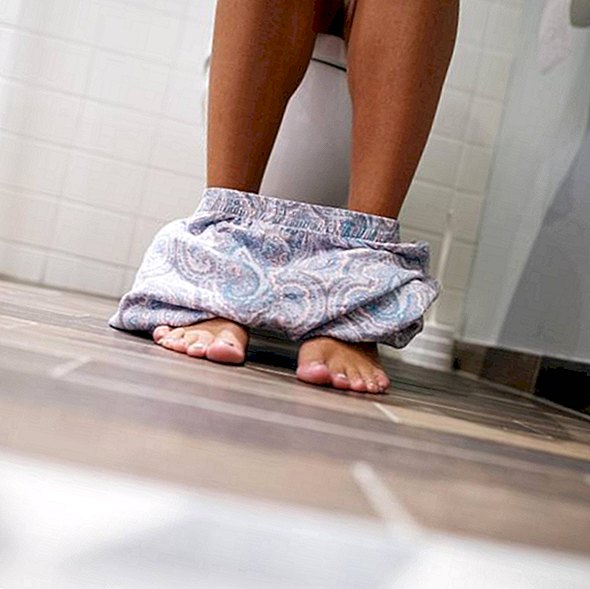Incontinence: what to do and how to prevent?

Virtually everyone knows this: No sooner had you been to the toilet, you have to run again. And urinating, it burns like hell. Many believe that bladder infections mainly affect young women ( "Honeymoon cystitis"). But in truth, as they grow older, they become even more prevalent.
According to surveys, one in five people over the age of 65 has had bladder eradication in the past twelve months. There are reasons for this: In old age, the immune system is often not so effective. The pelvic floor is less elastic, so that the bladder lowers and closure and emptying no longer work optimally. Both make life easier for pathogens. And little oestrogen additionally benefits from infections that rise through the urethra into the bladder.
Often, the bacteria in the bladder are only incidentally noticed during the two-year health check
But unlike for young women is it often not so easy for older people to recognize a bladder infection as such. Because the typical burning on the toilet does not occur sometimes. Often enough you can just hold bad water and have to go out more often at night.
Studies show that approximately every twofold 60-year-old bacterium can be detected in urine, and twice as often in 70-year-olds. Mostly they are only discovered by chance, For example, if you check the urine with a test strip for the bacterial degradation product nitrite. This is problematic because the bacteria from the bladder in the ureter can migrate towards the kidney and damage the organ. And then, after all, it's serious.
What to do?
It is important to be attentive. The elderly should have the first signs of a urinary tract infection cleared up, So, for example, the feeling that the bladder is not really empty or that it smells different on the toilet. Or that sometimes urine goes into the panties. Also incontinence is often better, if you treat the bladder infection.
Antibiotics yes or no? When does an antibiotic therapy really make sense?
The only question is: how do you do that? Is it possible to take antibiotics in the case of an infection that causes little or no illness? Especially since today already the "normal" bladder infection (ie with all the ridiculous symptoms such as burning urination, extreme urgency and abdominal trauma) should be treated only with restraint with antibiotics.
Long-term studies have shown that repeated bladder bleeding in older women often disappears on its own. In addition, we now know what a low effect antibiotic therapy has in the long term. Also, the excessive use of these drugs contributes to the fact that bacteria become more and more resistant (ie insensitive) to the active ingredients. First no.
Better try it with a so-called herbal antibiotic, such as nasturtium and horseradish, that also bugs bacteria. The effect is well documented. However, once a chemical mace is better than a persistent or recurrent urinary tract infection.
Clarify the causes
Anyone who has to deal with it over and over again should ask whether there is not a specific cause. Perhaps the urinary bladder does not emptying completely when it is being lowered, or stones and in the worst case a tumor obstruct the outflow of urine? It is also important to investigate whether the kidneys have possibly already been affected.
Which antibiotic is the right one, if one is necessary, depends, among other things, on how well the kidneys work (in older people, kidney function is often limited), or if allergies are present on certain active substances, In most cases, a standard antibiotic such as nitrofurantoin or trimethoprim is used for uncomplicated bladder infections. over a few days or even as a single dose. Only if that does not help, more accurate tests are needed to select the right drug targeted.
A full intestine presses on the bladder and prevents it from completely deflating
And what else can you do? A hot water bottle or hot seatbait relax the bladder muscles and so relieve the cramps. For over-the-counter remedies such as ibuprofen help. It is important to drink enough, as a rule of thumb one and a half liters per day. If you take antibiotics, you should not pour in gallons of water or bladder tea, because then the drug in the urine will be too much diluted to work optimally.
How to Prevent: Simple Tips to Prevent Cystitis
Vaginal creams with estrogens are good for prevention in older women. Anyone who gets bladder infections again and again should consult the woman doctor on these remedies. And what about cranberry juice? The data are contradictory, but there are some studies that have shown a protective effect. Also important for prevention:
- Wipe on the toilet from front to back, so that no intestinal germs get into the urethra
- Keep the subcool warm
- Active against constipation, with movement, a lot of fruit and vegetables and possibly mild Abfuutrmitteln - because a full intestine presses on the bladder and prevents it completely emptied
- Go to the bathroom right after sex. Because in an empty bladder, germs that were taken during sexual intercourse can multiply much worse.
Video tip: disgust alarm! In this place hide most of the germs











